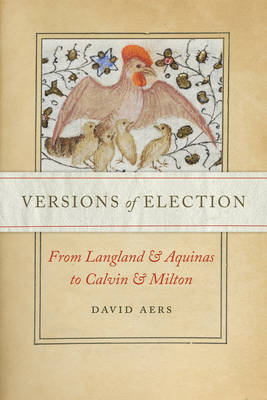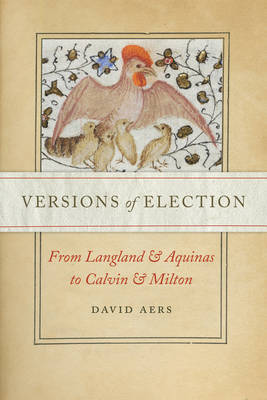
- Afhalen na 1 uur in een winkel met voorraad
- Gratis thuislevering in België vanaf € 30
- Ruim aanbod met 7 miljoen producten
- Afhalen na 1 uur in een winkel met voorraad
- Gratis thuislevering in België vanaf € 30
- Ruim aanbod met 7 miljoen producten
Omschrijving
Concepts of predestination and reprobation were central issues in the Protestant Reformation, especially within Calvinist churches, and thus have often been studied primarily in the historical context of the sixteenth and seventeenth centuries. In Versions of Election: From Langland and Aquinas to Calvin and Milton, David Aers takes a longer view of these key issues in Christian theology. With meticulous attention to the texts of medieval and early modern theologians, poets, and popular writers, this book argues that we can understand the full complexity of the history of various teachings on the doctrine of election only through a detailed diachronic study that takes account of multiple periods and disciplines. Throughout this wide-ranging study, Aers examines how various versions of predestination and reprobation emerge and re-emerge in Christian tradition from the Middle Ages through the seventeenth century. Starting with incisive readings of medieval works by figures such as William Langland, Thomas Aquinas, and Robert Holcot, and continuing on to a nuanced consideration of texts by Protestant thinkers and writers, including John Calvin, Arthur Dent, William Twisse, and John Milton (among others), Aers traces the twisting and unpredictable history of prominent versions of predestination and reprobation across the divide of the Reformation and through a wide variety of genres. In so doing, Aers offers not only a detailed study of election but also important insights into how Christian tradition is made, unmade, and remade.
Versions of Election is an original, cross-disciplinary study that touches upon the fields of literature, theology, ethics, and politics, and makes important contributions to the study of both medieval and early modern intellectual and literary history. It will appeal to academics in these fields, as well as clergy and other educated readers from a wide variety of denominations.
Specificaties
Betrokkenen
- Auteur(s):
- Uitgeverij:
Inhoud
- Aantal bladzijden:
- 330
- Taal:
- Engels
- Reeks:
Eigenschappen
- Productcode (EAN):
- 9780268108663
- Verschijningsdatum:
- 30/11/2020
- Uitvoering:
- Paperback
- Formaat:
- Trade paperback (VS)
- Afmetingen:
- 152 mm x 229 mm
- Gewicht:
- 485 g

Alleen bij Standaard Boekhandel
Beoordelingen
We publiceren alleen reviews die voldoen aan de voorwaarden voor reviews. Bekijk onze voorwaarden voor reviews.











